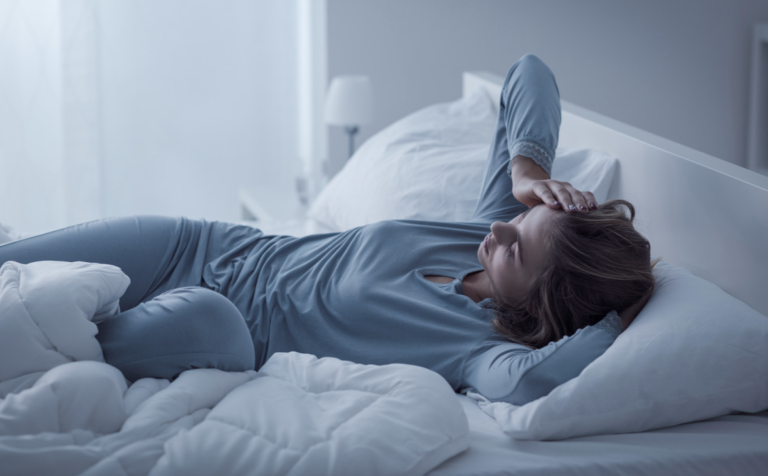
Light keeps your brain primed for wakefulness. Avoid light in the late evening. Shut off your electronic devices at least 30 minutes before bedtime.Give your brain time to unwind. If you need to pay bills or settle an argument, do it during the day, not at bedtime.In the evenings, avoid activities that can keep you awake, like drinking coffee, soda, or other caffeinated drinks smoking exercising and eating heavy meals.Establish a presleep ritual before bed. For example, taking a shower and putting on sleepwear might signal your brain that you’re heading to bed.Instead, your brain needs help shifting to sleep. Get your brain ready for sleep. You can’t make your brain fall asleep on command as if you were stepping on the brakes to stop your car, says Salas. Set a bedtime and a wake-up time for yourself, and stick to it. While most people need 7 to 9 hours of sleep at night, keeping a consistent cycle may be even more important than quantity, she says. Set aside time for sleep. Keep your cycle of sleeping and wakefulness steady throughout the week, including the weekends, recommends Salas. To help ensure that you can fall asleep when you want to-and stay asleep for the quality rest you need-make sleep a priority in your life. Not getting enough high-quality sleep can increase your risk of depression, weight gain and obesity, type 2 diabetes, high blood pressure, heart disease, and memory and concentration problems. The condition compromises more than your energy levels, so it’s worth recognizing the symptoms and getting help from your health care team.

If it happens at least three nights a week and lasts for at least one month, you may have what sleep experts call persistent insomnia disorder. Up to 10 percent have insomnia severe enough that it’s considered a full-fledged disorder.Įxperts have different definitions of insomnia, says Johns Hopkins sleep expert Rachel Salas, M.D. But insomnia is generally characterized by trouble falling asleep or staying asleep, resulting in a lack of sleep that causes distress or difficulty with daily activities. It’s the most common sleep-related problem, with about one-third of adults experiencing insomnia symptoms at any given time. While the rest of the world is sleeping, some people remain wide-awake due to insomnia.


 0 kommentar(er)
0 kommentar(er)
